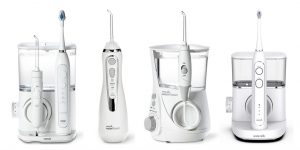Supporting Patients with Implants
Featured Products Promotional FeaturesPosted by: Dental Design 26th January 2022

Patients do not always understand the level of commitment that comes with having implants and many presume that once they’re placed and restored, they are good to go. Dental professionals understand that this is not the case; no matter what procedure a patient has gone through the aftercare and support required is equally as significant. It’s important for patients to understand that having implants is a life-long journey, keeping them clean is essential, and there could be additional expenditure in the future.
A Team Approach
The support a patient receives throughout this process is integral to the success of the implants. In a recent webinar hosted by Helen Minnery,[i] she suggests that a team approach should be taken by everyone involved in any part of the process, and ideally this starts pre-placement, continues during and post-placement. Everyone in the practice has a role to play in this approach and therefore the support becomes an integrated part of the patient’s experience.
Who makes up the whole team? The dental hygienist, the implant nurse, the dentist, the dental nurse, the oral health educator, the receptionist, the specialist, the treatment coordinator, and the dental technician all have a role to play with the patient’s implant journey. The patient is the most important member of the team according to Minnery’s guide in supporting patients with implants. Good communication between the patient and the professional team is key; they should feel that they can be open and ask questions when needed and professionals also need to be able to take an honest and robust approach where necessary.
A patient needs to understand the cost implications of undergoing an implant procedure, as well as the long-term financial commitments, as it is not just a one-off payment for them to have great teeth. They may have to pay for restorative repairs and/or replacements in the future as there could be unforeseen circumstances – all accrue financial costs. Patients need to understand the role they play; this mostly lies with the at home care of their implants in order to secure the longevity of their treatment. Understanding the importance of long-term monitoring and supportive care is also integral to preparing a patient adequately: the oral care routine they must adopt needs to be implemented daily and remain consistent. Attending regular check-ups is part of the process that needs to be made clear to the patient, to assess the health of their implants over time. Lastly, as most patients will have already suffered some kind of gingivitis, it is integral that they understand the consequences if they do not adhere to the post-operative care required.

Supportive Therapy
Patients should expect to have the superstructure removed annually to ensure it is healthy, as well as check-ups every three-six months. These check-ups are lengthy and time consuming but necessary to ensure the longevity of the procedure. Minnery explains that her practice uses a traffic light system in order to monitor a patient’s commitment to their appointments. Once they miss one and their name highlights orange they are contacted, miss another, they are marked red and contacted further.
Supportive therapy ensures that all patients are keeping up to date with their appointments and also taking responsibility for the role they play within the team supporting their treatment. One way in which patients can ensure that they are meeting the standards of oral hygiene needed is with the products that they use and that’s why offering them a Waterpik® Water Flosser could be the answer. Clinically proven results include up to 99.9% effective plaque removal[ii] and for patients already vulnerable to periodontal disease regular use of this product will ensure that their oral health is maintained at a high quality.
To Probe or Not to Probe!
There seems to be some scepticism regarding whether to probe after surgery or not, and if so, what is the best material to use? Minnery explains that bleeding on probing (BOP) is considered a key measure to distinguish between peri implant health and disease. She suggests that peri implant tissues need to be regularly examined, including probing, to assess the health of the gingiva. Peri implant health is characterised by a lack of visual signs of inflammation and BOP, which suggests that probing is necessary in order to assess the health of specimen.
In summary, supporting a patient throughout the implant process is complex but success is very achievable. Once patients and professionals are working together, with the appropriate products, the road to a full and lasting recovery is not as long as it may seem.
Charleane McInally is a professional educator for Waterpik, and dental hygienist
For more information on Waterpik® Water Flosser products visit www.waterpik.co.uk. Waterpik® products are available from Amazon, Costco UK, Argos, Boots, Superdrug and Tesco online and in stores across the UK and Ireland.
Join the 3,000+ dental teams who have already benefitted from a professional Waterpik® Lunch & Learn. Book your free session for 1 hour of verifiable CPD and a free Waterpik® Water Flosser – available either face to face or as a webinar – at www.waterpik.co.uk/professional/lunch-learn/
[i] Minnery, Helen. “Auditorium.” View6.Workcast.net, view6.workcast.net/ControlUsher.aspx?cpak=7637114183296471&pak=4293839523231997. Accessed 5 Oct. 2021.
[ii] Gorur A, Lyle DM, Schaudinn C, Costerton JW. Compend Contin Ed Dent 2009; 30 (Suppl 1):1 – 6.
No Comments
No comments yet.
Sorry, the comment form is closed at this time.



